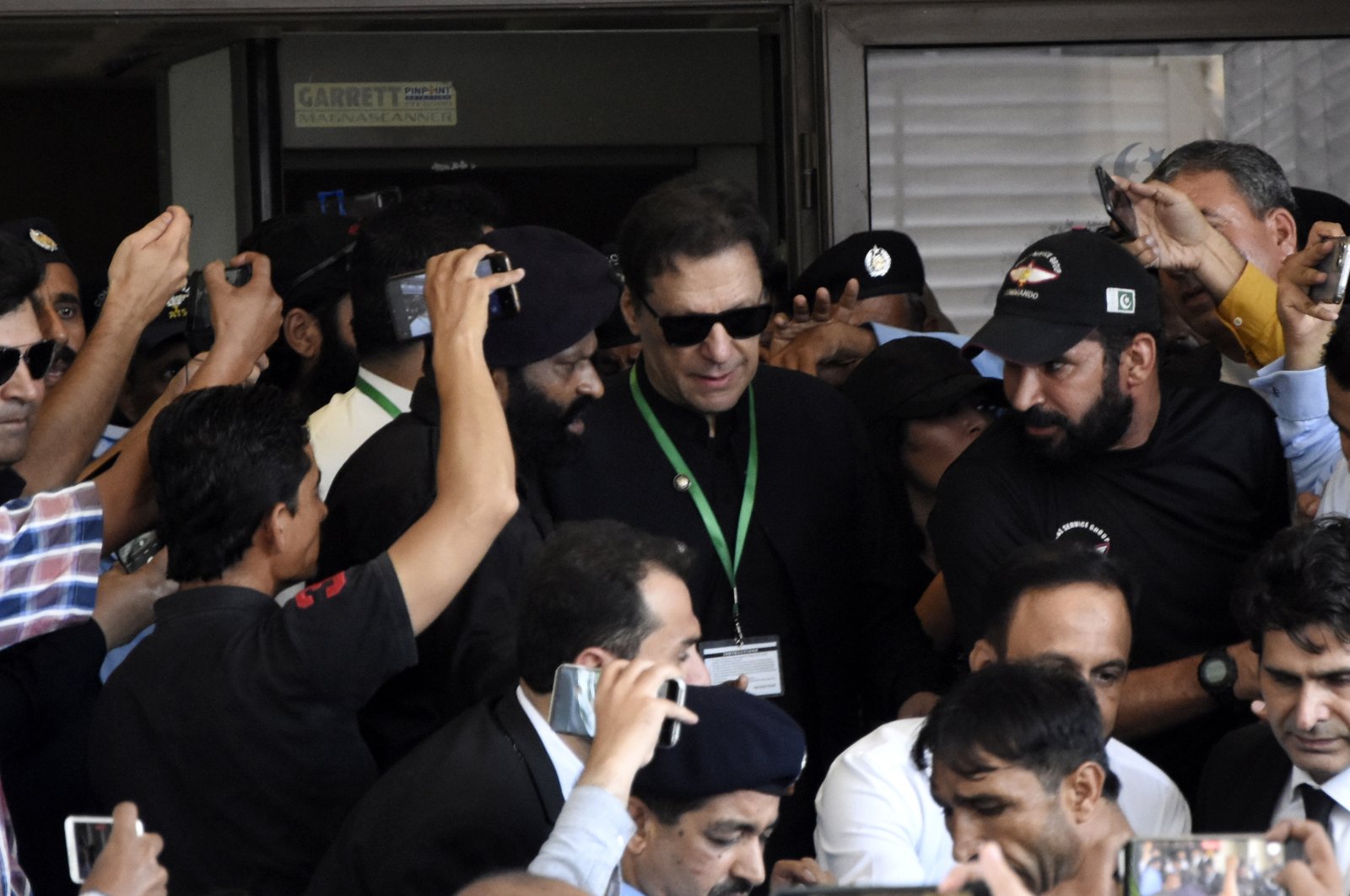
Pakistan's election commission issued a non-bailable arrest warrant for former Prime Minister Imran Khan Monday, as the country's interior minister accused him of exposing official secrets for political gains.
Khan was arrested in May by Pakistani authorities in connection with a corruption case, which sparked deadly unrest across the country. He was released on bail within days.
It was not immediately clear which charge the Election Commission's order related to and whether police would act on the warrant. The Pakistani media outlet Geo did not disclose its source.
Khan has faced many charges in different institutions and courts since his ouster, including graft, murder and sedition.
The latest in the string of cases came last week when Pakistan's interior minister said the government would open criminal proceedings against Khan on charges of exposing official secrets, in relation to diplomatic correspondence between Washington and Islamabad.
The government plans to bring criminal charges against Khan over the action, Interior Minister Rana Sanaullah told reporters in Islamabad, alleging that the former premier's abuse of an official secret document had harmed Pakistan's foreign relations.
The development is the latest in a tug-of-war between Khan, who was ousted from power in a no-confidence vote in the parliament in April last year, and the administration of his successor, Prime Minister Shehbaz Sharif.
Khan has been granted bail in many cases but has been forced to repeatedly appear in courts to seek protection from arrest, a common step under Pakistani law.
Sanaullah, the interior minister, was referring Wednesday to an incident after Khan's ouster when the former cricket star turned Islamist politician addressed a gathering of supporters.
At the gathering, Khan waved the document, describing it as "proof" that he was threatened and claiming that his ouster was a conspiracy between his opponents and the United States. Pakistan's military, Washington and Sharif's government have all denied any conspiracies against Khan.
The document that Khan waved was apparently a diplomatic correspondence between Asad Majeed, Pakistan's then-ambassador to the United States, and the Ministry of Foreign Affairs in Islamabad, according to Azam Khan, a former secretary to Imran Khan and one of the scores of his followers who have abandoned him in the wake of the May violence.
The content of the document, dubbed Cipher, has not been made public. Azam Khan, in a statement to court earlier on Wednesday said the document was about Imran Khan's visit to Moscow, which coincided with Russia's invasion of Ukraine in February 2021.
He also said the former premier had "manipulated the official secret document" despite being advised not to do it. When Azam Khan later asked for the document back, he said he was told it was lost.
Sanaullah said the government would have to recover the Cipher from the former premier as he believes Imran Khan still has it.
"It's a crime to reveal official secrets," said Sanaullah.
Khan dismissed the government's planned charges as another one of its "feverish attempts to implicate me in any case just to get me disqualified and jailed" and said he would expose "the whole Cypher drama" on Thursday.
"I will share the uncensored details of how this conspiracy unfolded," he tweeted. "I assure you it will be more gripping than any drama on tv."
Later Wednesday, Pakistan's Federal Investigation Agency summoned Khan to appear in person before its investigators on July 25 to explain his allegations that he was removed under a conspiracy.
The notice requested that he bring documents to back up his claims and warned him that failure to respond could involve legal action. Khan had in the past not complied with two similar notices to appear before the agency.
Separately on Wednesday, Khan appeared before a court in Islamabad, which extended his bail terrorism-related cases until July 26.
On Monday, dozens of Khan's followers quit his Pakistan Tehreek-e-Insaf party to launch their own ahead of parliamentary elections expected later this year. The defections were a major "political rebellion" against Khan ahead of the vote.
